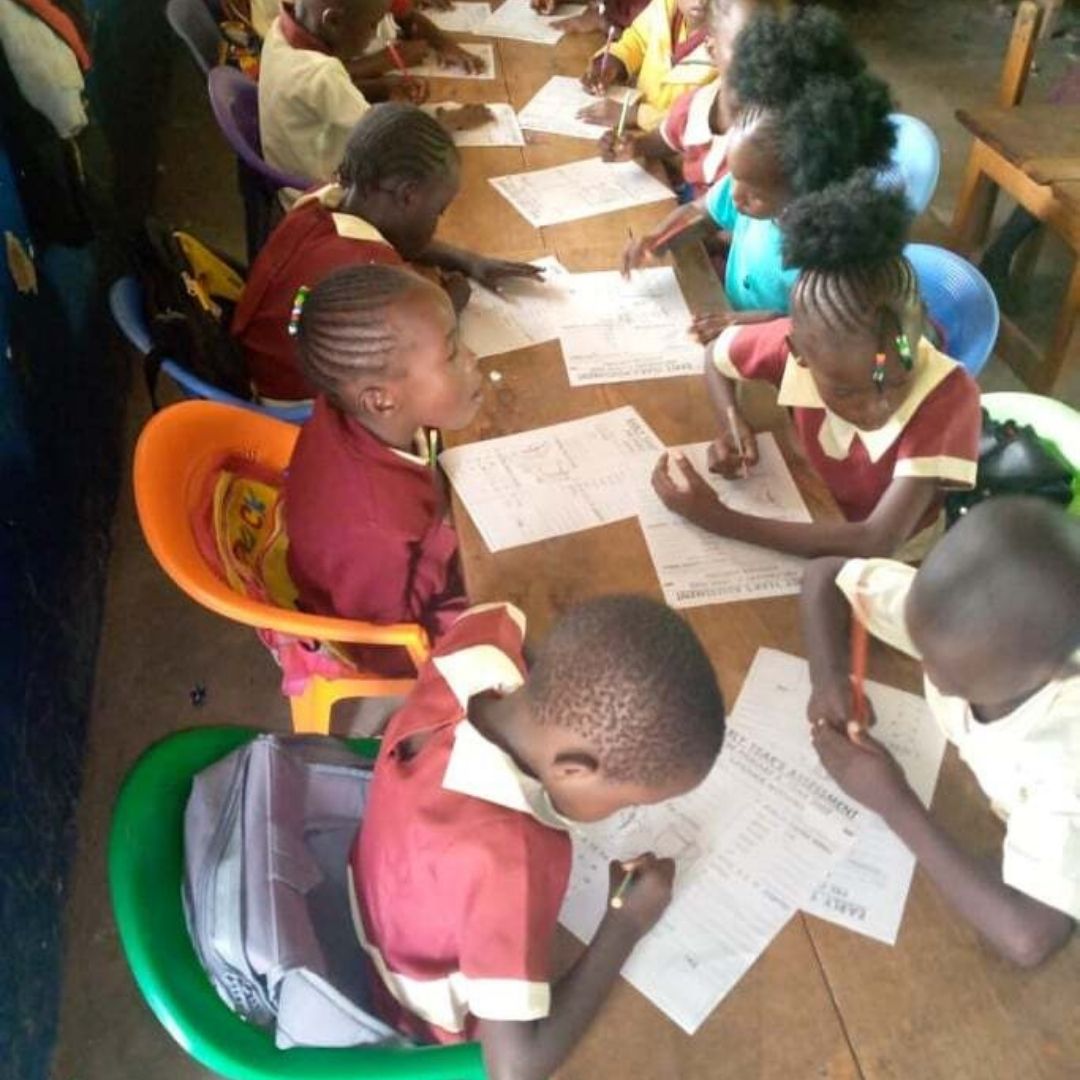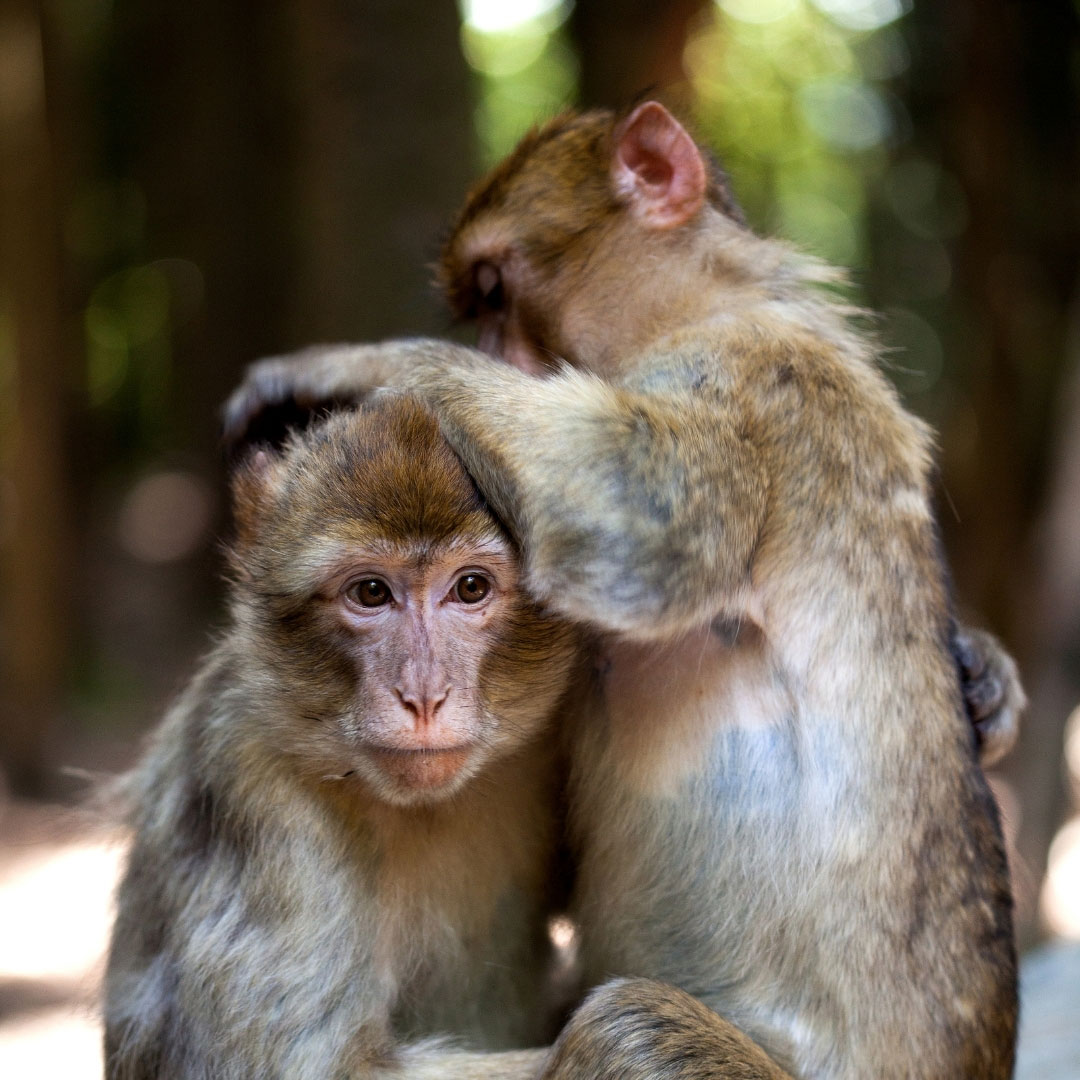Here at Learning Online, we have a vision for the future. We see a world where knowledge, learning and personal growth is possible for everyone. Regardless of an individual’s background, past experiences or life circumstances. We believe that everyone deserves to have access to education; to have the opportunity to not just survive, but thrive with whatever they do in life.
That’s why we consider our ultimate purpose to be delivering life-changing education, to help improve people’s lives for the better.
And so, when Mel Haley from a charity called Hope Katolo reached out to us last year to help support their school for kindergarten aged children in Kenya, we were extremely excited to be offered this opportunity.
Hope Katolo provides kindergarten and early primary school education funding for teachers, meals for students, staff and basic school supplies such as clothing and textbooks – among many other things.
For us, we are delighted to have been able to contribute and help fund a full year of operations for the school. We also realise what a privilege it is to be in the position we are in, where we are able to make decisions to help people and organisations just like Hope Katolo.
We really believe in living out our mission of delivering life-changing education, not just for our students in this wonderful country but around the world too. And we’re extremely grateful to be able to impact these children’s lives in a positive way.
To help celebrate everything Hope Katolo does and achieves, we sat down with Mel and asked a little more about Hope Katolo’s story and history. We hope you enjoy discovering this amazing initiative.
When was the Hope Katolo School founded and what was the inspiration behind its inception?
Georgina (our current Head Teacher) founded the school prior to us visiting Kenya as volunteers in 2007. She had recognised that children – including her own – in the area were not receiving any pre-school education and that many were commencing primary school either late or disadvantaged due to lack of pre-school.
When we met Georgina and the children at the school, their situation was dire. They were running the school out of a mud hut and with no resources; the children would sit on the mud floor for their lessons, and many of them were severely malnourished and had been unable to engage properly in the activities.
Prior to leaving Kenya, four of the volunteers (including Leanne and I) donated money to purchase land on which to build a new school. On returning to Australia, Leanne and I have continued to fundraise to support the building and general upkeep of the school, including meals for the students and payment for the teachers.
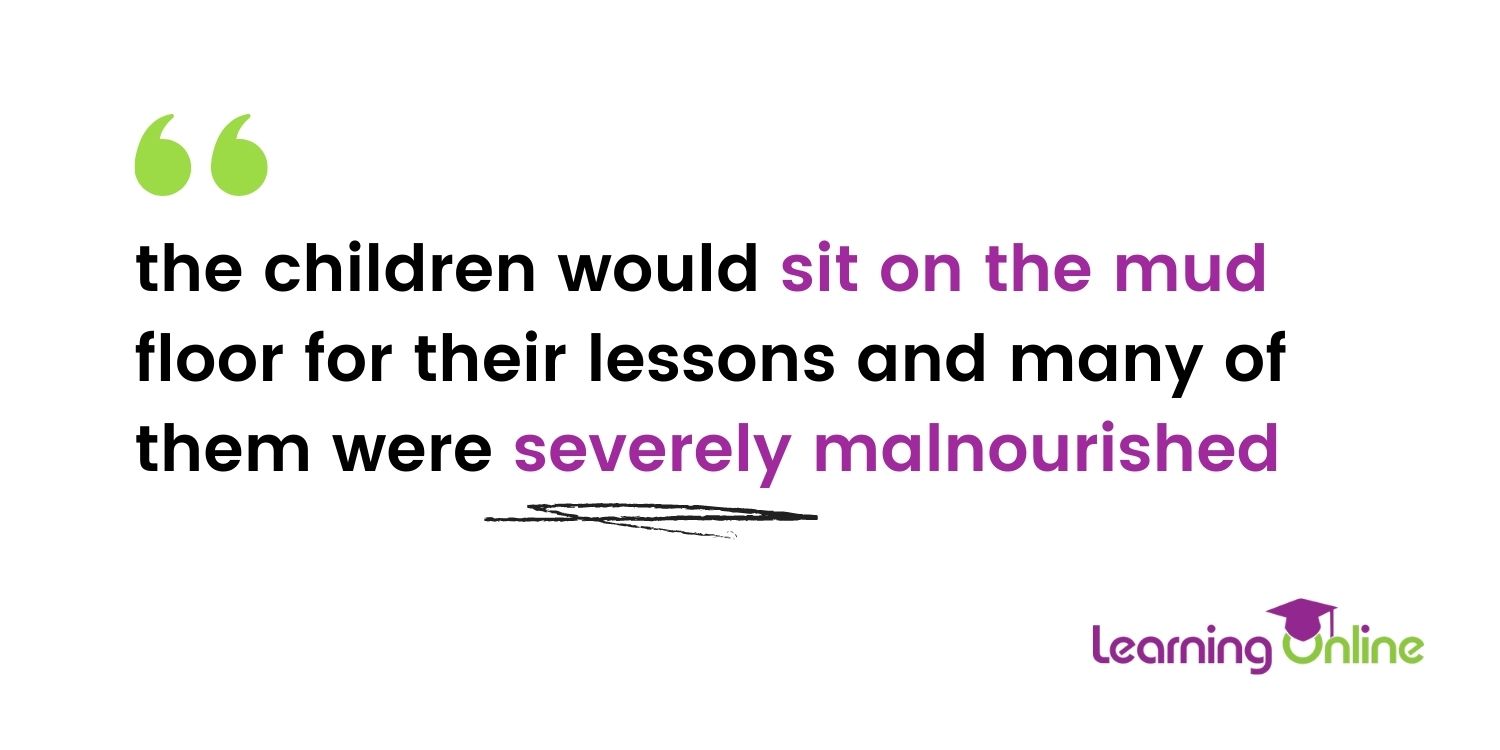
Leanne and I both work here in Australia – Leanne is a veterinarian at Lort Smith Animal Hospital and I am a physiotherapist at Eastern Health.
Can you tell us a little bit about the founders?
Georgina is a mother of three children who decided to devote her time to the education of young children in her area. Prior to our involvement, she was doing this voluntarily but has received a wage for her work since approximately 2008 (as have the other teachers and staff at the school).
When we met Georgina and the nursery school, there was a council made up of parents and interested parties, and we had meetings prior to returning to Australia to ensure that there was local commitment for this project to be a success.
Can you describe the school, student demographic and its mission?
The school, as it stands now, is a three-classroom nursery school (like a kindergarten), with the children split into baby, middle and final classes. Children range from as young as 3 and as old as 6 or 7.
In terms of the actual school, there is a staff room and a sick bay for the children. There is a kitchen, pit toilets, water tanks and currently, a multipurpose hall is being built (with thanks to Forest Hill Rotary). They grow their own vegetables and have chickens and goats. The entire school is bordered by a fence and is also guarded in the evenings.
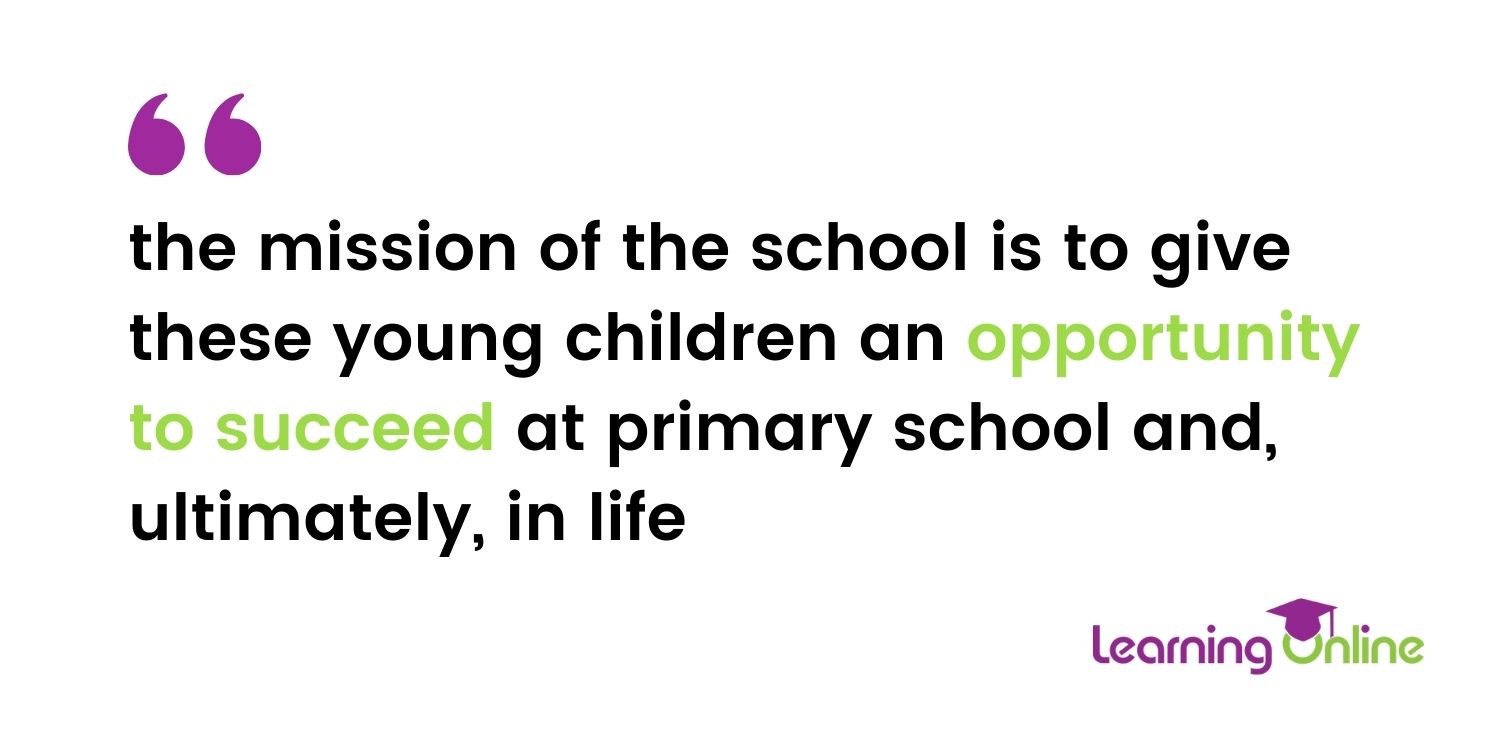
Approximately 90 children attend the school each year. The school is based in rural Kenya, not far from the Ugandan border (approximately 1-hour drive from Kisumu, on Lake Victoria). The area is subject to extremes of weather – droughts and flooding rains. In addition to this, the local population is very poor and most adults and families live hand to mouth. HIV and TB are prevalent. Housing is in the form of mud huts (generally), and there is no electricity or running water in the area.
There is no mission statement as such, but essentially the mission of the school is to give these young children an opportunity to succeed at primary school and, ultimately, in life. To do whatever we can to break the cycle of poverty for the families of Katolo.
How many students does the school have enrolled?
Approximately 90 children every year. Exact numbers are sometimes difficult, given that the population is very transient due to the poor job and food security in the area.
What is the impact that Hope Katolo is having on their students and its community?
Hope Katolo Nursery School, combined with its staff/students, is an absolute beacon of hope for the Katolo community.
Parents can be assured that their children will receive a daily meal and a good start to their education, where otherwise neither was possible. Most of the employees of the school are females who otherwise would have difficulty obtaining work in the area (females are underrepresented in paid employment in the area/Kenya in general) and all of the nursery school staff receive wages and superannuation contributions.
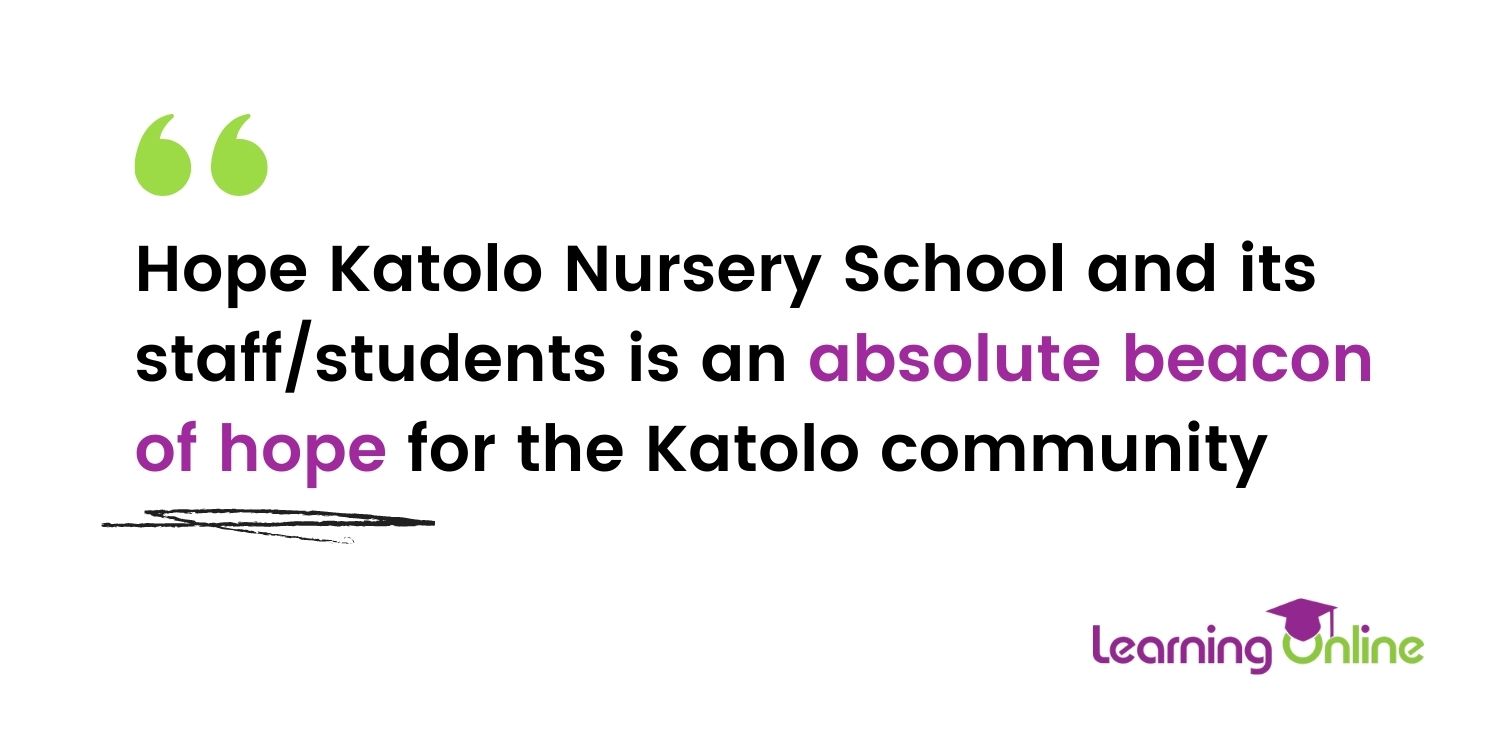
Fundraisers such as Hamper of Hope, that are run at the school each Christmas, show the local community that somebody does care about them. And they receive the only Christmas gift (hampers of food) that they are likely to ever receive.
Students from Katolo are able to start primary school on an equal footing with their peers (and at times are further advanced), which gives them and their parents incentive to keep them in education, and therefore a better chance at lifting themselves out of poverty.
What does the future look like for the Hope Katolo School?
We are hopeful to continue to support the school to become more self-sustainable, however, this has been challenging given the volatility of circumstances in the area (there was a time during our involvement that the region was to be listed as in “famine”).
That said, we are hopeful that the school will be able to produce more and more of its own food and that the local community may be able to contribute gradually more towards the running of the school.
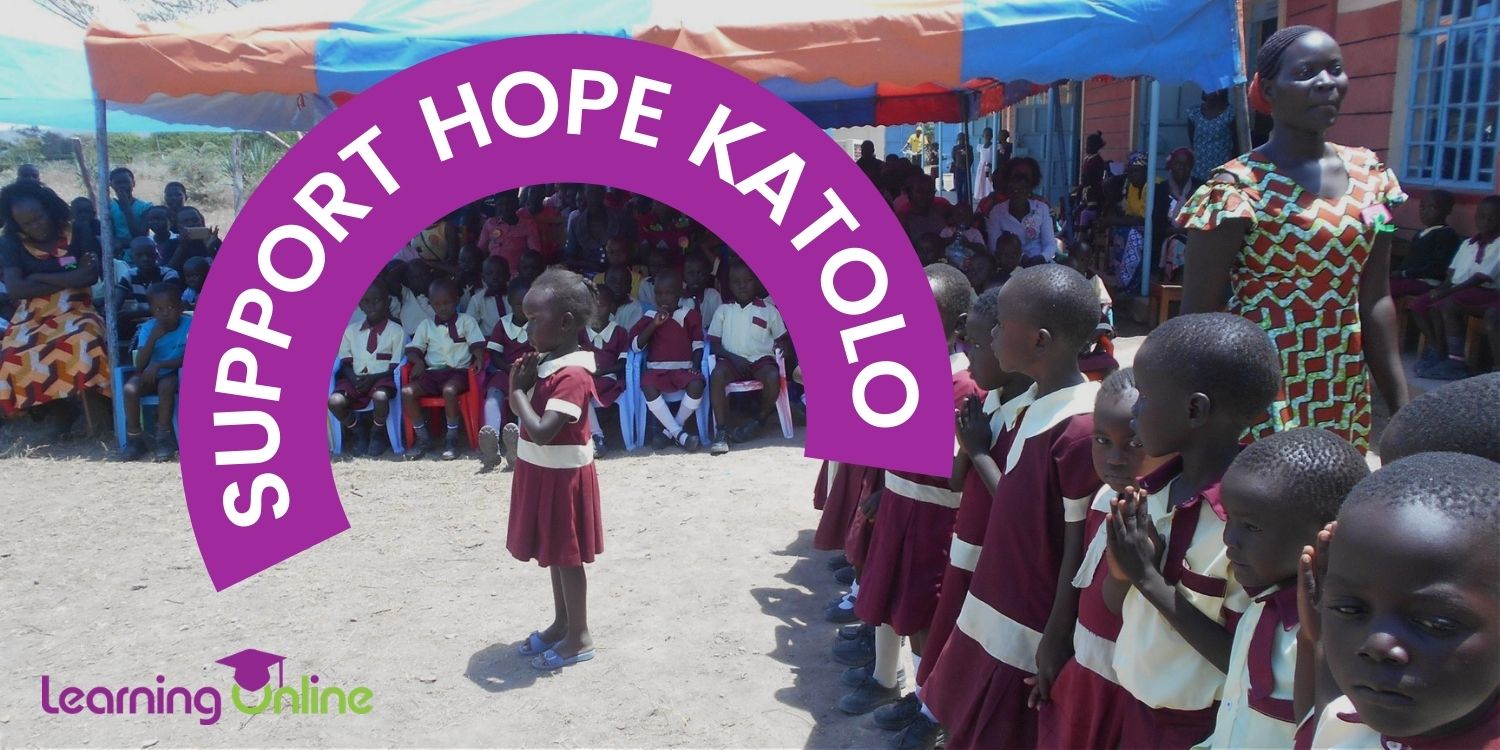
How can others get behind the school and support this wonderful cause?
Follow us on Facebook (just look up Hope Katolo Nursery School) to see occasional updates, news re fundraisers etc. You can also join our mailing list (we promise we don’t send too many emails! We can be contacted on [email protected].
If you have heard enough and just want to make a donation (no tax receipt), you can do this direct:
Hope Katolo Nursery School
Account 411858
BSB 033340
Or if you would prefer to make a donation with tax receipt, this has kindly been set up by our friends at Rotary, and you can donate here:
- Click on Explore projects and then search for Hope Katolo Nursery School – number 38-2021-22
Any final comments?
Thanks so much to the team at My Learning Online for their generous support of the school. Your generosity is greatly appreciated and goes a long way for the people of Katolo.
